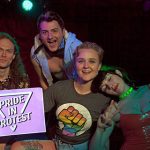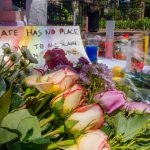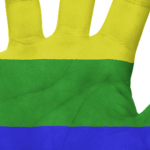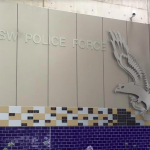Homophobia Within the NSW Police Force
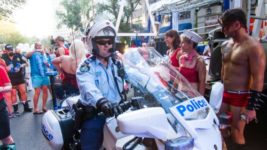
Today marks the 41st anniversary of Sydney’s Gay and Lesbian Mardi Gras Parade, an annual celebration of LGBTI pride signified by colourful costumes and elaborate floats.
However, Many are unaware the event started as a protest march for human rights which was marred by violence at the hands of the NSW Police Force.
Indeed, a culture of homophobia has plagued police forces across Australia since their inception and continues to do so to this very day, leading to criticism of the lax police attitudes towards gay hate murders and anti-gay sentiment within the force.
Targeting gay officers
This sentiment affects not only the broader community, but LGBTI police officers as well.
Currently, the NSW Force is fighting a discrimination lawsuit from four former openly homosexual officers who were targeted by an eight-person strike force on illicit drug use within the force.
The officers were targeted as a result of a complaint by a superior officer that the men had “loose morals” and were “promiscuous”. The complaint added that “drug use is thought to be fundamental in such indiscriminate sexual encounters.”
The investigation was expanded after police reported that the officers had shaved their hair and eyebrows, purportedly to avoid hair follicle drug testing. It turned out the conduct was actually a “shave down for charity”, which hundreds of people participated in.
After being subjected to a six-month investigation, which included drug testing, the officers were cleared of any wrongdoing, with no evidence of drug use or other misconduct.
Lawyers for the three men argued that then assistant commissioner Mick Fuller “turned a blind eye” by rejecting their clients’ “series of pleas” to investigate their counter-complaint of homophobia.
Conciliation talks broke down after Police Commissioner Andrew Scipione refused to meet the officers involved.
Officers detail broader culture of homophobia
In affidavits filed earlier this year, the four officers – Stephen Rapisarda, Shane Housego, Christopher Sheehy and Christian McDonald – detailed a broader culture of homophobia within the force.
McDonald, who has subsequently left the force, swore that after being taken to hospital with head injuries sustained from hitting his head on a pavement, a manager remarked that he “should be used to having your head down arse up in the concrete”.
He further swore that when he requested annual leave for his same-sex marriage anniversary, a superior stated to him that, “Same-sex marriage is not OK with me. It disgusts me.”
Sheehy reported receiving “homophobic, negative and derogatory comments made by police officers, particularly among senior officers in management positions.”
He swore that fellow officers expressed disgust at gay men they saw kissing on the street, referring to them as “poofters”, “faggots”, “gay as AIDS ” and “ pillow biters”. He said the officers would regularly “dismiss claims of domestic violence when reported by gay people.
Lawyers for the NSW Police Force called upon the NSW Civil and Administrative Tribunal not to be “hypersensitive” to the complaints, submitting that, “The nature of the allegations do not rise to a demonstration of some sort of culture of discrimination”.
The four men are seeking $100,000 each in damages, a personal apology from Police Commissioner Mick Fuller and changes to NSW Police Force’s LGBTIQ policies.
Another case
The Industrial Relations Commission (IRC) has cleared another openly gay policeman George Zisopoulos of claims of drug use that led to his dismissal, finding that his termination was “harsh, unreasonable and unjust” and ordering his reinstatement.
Mr Zisopoulos was in regular contact with illicit drugs and drug-affected offenders in his role as a police officer. He was selected for a drug test at Newtown police station in April 2015, including a hair follicle test.
His hair sample showed very low levels of methamphetamine, which experts found could be due to “external contamination”. Despite this finding, Mr Zisopoulos was dismissed in December 2016.
His solicitor said the targeting raised serious concerns about a culture of homophobia within NSW Police Force, stating that, “This has shown there is the possibility of a culture within the police force that targets homosexuals.”
The Parrabell report
The NSW Police Force’s Strike Force Parabell released a report into 88 deaths between 1976 and 2000 which were suspected of being motivated by ‘gay-hate’.
The report found that 27 of the deaths were linked to gay-hate bias, 25 may have been and 34 were not.
NSW Labor questioned whether NSW Police were the right people to undertake the investigation, given they would effectively be investigating the actions of their own agency.
“Unfortunately, fear associated with anti-gay attitudes of officers within the NSW Police Force at the time prevented these reports being formally recorded which, in turn, meant that crimes were not investigated,” said a NSW Labor spokesperson.
The Parabell report did, however, conclude the lack of action by police gave perpetrators a “social licence” to inflict violence against people they suspected of being homosexual. NSW Labor has called for a parliamentary inquiry into anti-gay violence.
So while thousands celebrate at today’s parade, it is important not to lose site of the reasons behind the annual event and the way in which those who are policing it have been, and continue to be, conducting themselves.



